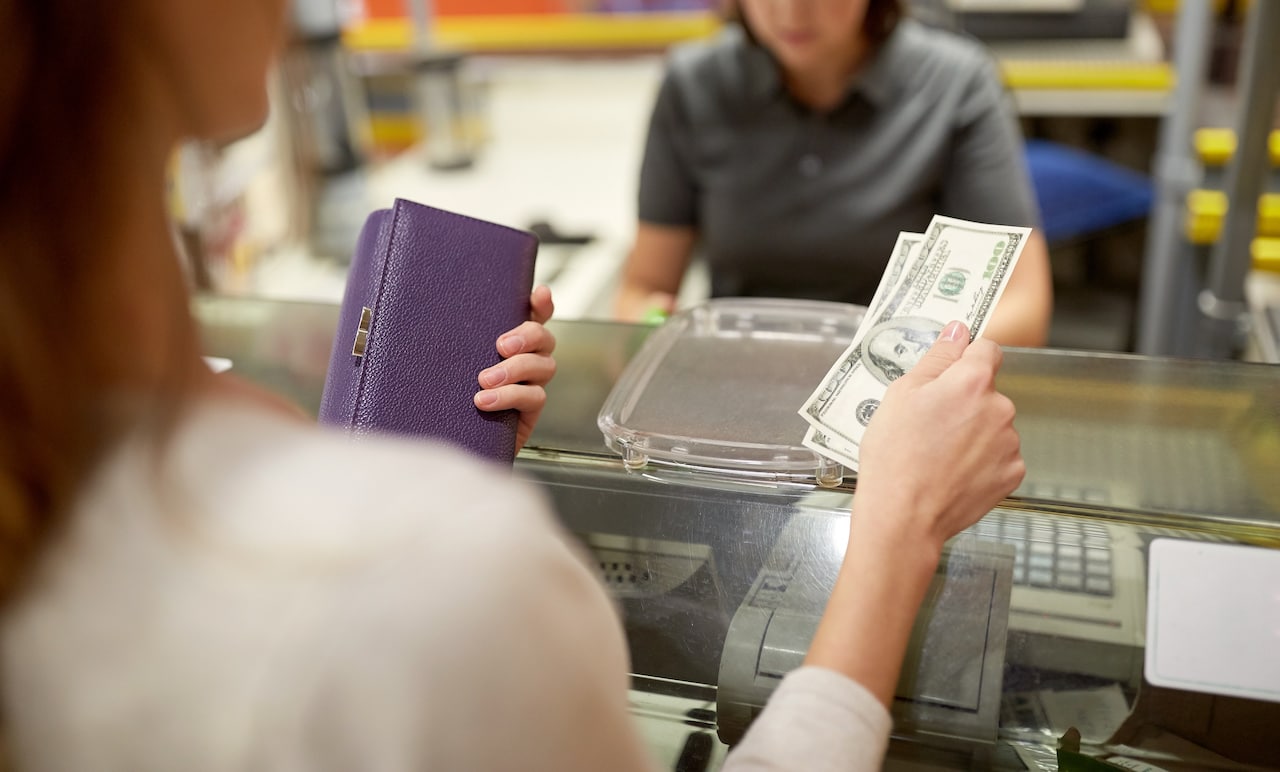Credit Sesame looks at the consequences of living without a bank account.
Millions of Americans rely on savings accounts and checking accounts from banks and credit unions to help manage their money. Although it’s possible to function in society today with no bank account, it’s not recommended. That’s because, without a bank account, the cash and funds you keep are less safe and it’s more difficult to use, transfer, and manage your money.
It is possible to get by with prepaid debit cards, check-cashing services, and digital wallets like Venmo, PayPal, Zelle, or Apple Pay. However, opening and keeping a savings or checking account with a physical or online bank or credit union can replace or complement these strategies, making monetary matters a lot easier and safer.
Why it’s smart to open and keep a bank account
Living without a bank account is possible, but there a lots of good reasons for having a bank account.
Having an account with a bank or credit union is an essential financial tool for most people. It enables consumers to conveniently partake in everyday transactions, such as paying bills, receiving direct deposits of payroll checks and other income, transferring funds, and maintaining emergency savings.
“All of these activities are easier and more secure when you have at least one bank account,” says Amy Maliga, a financial educator with Phoenix-based nonprofit financial counseling agency Take Charge America. “If you are managing accounts responsibly, there are few downsides to having a bank account, other than possibly paying fees or having to maintain a minimum balance.”
Even though your credit report and credit score aren’t directly affected by your banking habits, maintaining bank accounts in good standing is crucial for achieving your credit goals.
“Potential lenders may review your checking and savings accounts to determine if you have the assets to pay back a loan,” Maliga notes. “Additionally, without no bank account, it’s harder to pay bills on time – which is the most important factor in building and maintaining a positive credit history.”
Shawn Plummer, CEO of The Annuity Expert, agrees.
“Your banking history is your evidence of responsible financial management. Making payments on time builds credit, showing proof of your financial health,” says Plummer.
With a bank account, you should be able to easily make or schedule electronic payments, which is a lot faster and easier than getting money orders and delivering them via mail or in person. Additionally, while it isn’t much, many savings accounts earn a small amount of interest each month based on the amount of your balance and the bank’s paid rate of interest.
Good candidates for having a bank account
You usually don’t have to meet any specific criteria to qualify for a bank account or credit union account. Virtually any physical or online bank should be able to easily open an account for you, many with no fees attached, although you may be required to maintain a minimum balance.
“Literally anyone with income and bills can open a bank account. There is no good reason not to have a bank account unless you have an under-the-table business and don’t want the IRS to find out the income you are earning – in which case, you are committing tax evasion, which is not a good idea,” Blaine Thiederman, founder and principal advisor for Progress Wealth Management in Arvada, Colorado, explains.
“Anyone over the age of 18 should probably have a bank account,” suggests Carter Seuthe, CEO of Credit Summit. “While it makes sense to wait until age 18 in most cases, it can actually be valuable for younger people who already have formal jobs to get a bank account to at least deposit their checks in.”
The consequences of living without a bank account
Having no bank account makes many aspects of life needlessly challenging and, in some cases, more costly.
“Consider that those who are unbanked must rely on check-cashing services to receive cash and use money orders or cashier’s checks to pay bills, all of which come with fees,” cautions Maliga.
What’s more, storing large amounts of cash in your home is a risky practice that can attract thieves. Keep in mind that if the money you have stashed under the mattress is lost or stolen, there’s no way to get it back.
“Without a bank account, any extra savings you have could be lost in a fire or burglary. Or, if you die, your family may have trouble finding it,” says Thiederman. “Having a bank keeps things organized and protected at no extra cost to you. What’s more, every bank account has FDIC insurance, so if the bank goes out of business you don’t have liability for the loss unless you have more in the account than $250,000.”
Another major disadvantage of living without a bank account is that there is no paper or electronic trail in place.
“You’ll have a hard time proving a money trail, so purchasing things like a home or investing for retirement will be more difficult,” Thiederman cautions.
Ponder, as well, that although it can be possible to apply and get approved for a credit card or loan without a bank account, “every single application you fill out for a credit card or other form of debt is probably going to ask if you have a bank account,” Seuthe continues. “Certain credit rating agencies and other financial services will also offer special consideration to individuals who use direct deposit for their paychecks or debt payments – all of which requires a bank account.”
Best practices when you have a bank account
Even if you don’t plan to use your bank or credit union account much, take the time to review your statements from the financial institution every month to ensure that all transactions are accurate and no fraud has occurred, Seuthe recommends.
“Also, keep your personal identifying information up-to-date, take steps to avoid overdrafts on your ac
count, such as by applying for overdraft protection, and change your banking passwords regularly to safeguard your accounts,” advises Maliga.Lastly, if you are unhappy with your bank account, avoid the impulse to drain and abandon it. If you decide you really prefer living without a bank account, make sure it doesn’t sit unused for ever more.
“Take the steps to work with your bank or credit union to formally close the account,” Maliga adds. “Opening and abandoning multiple accounts is a red flag to other financial institutions that can make it harder to continue having productive banking relationships.”
Disclaimer: The article and information provided here is for informational purposes only and is not intended as a substitute for professional advice.




















